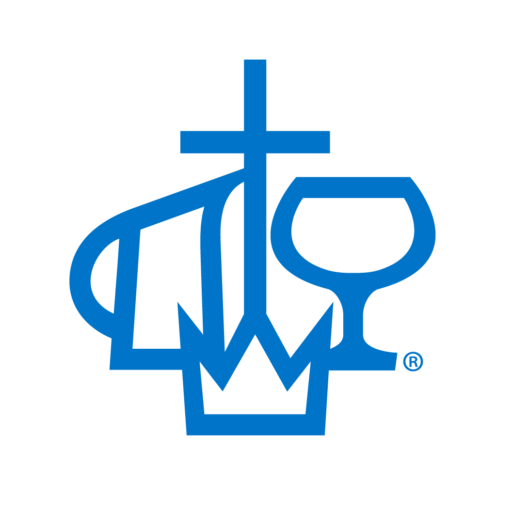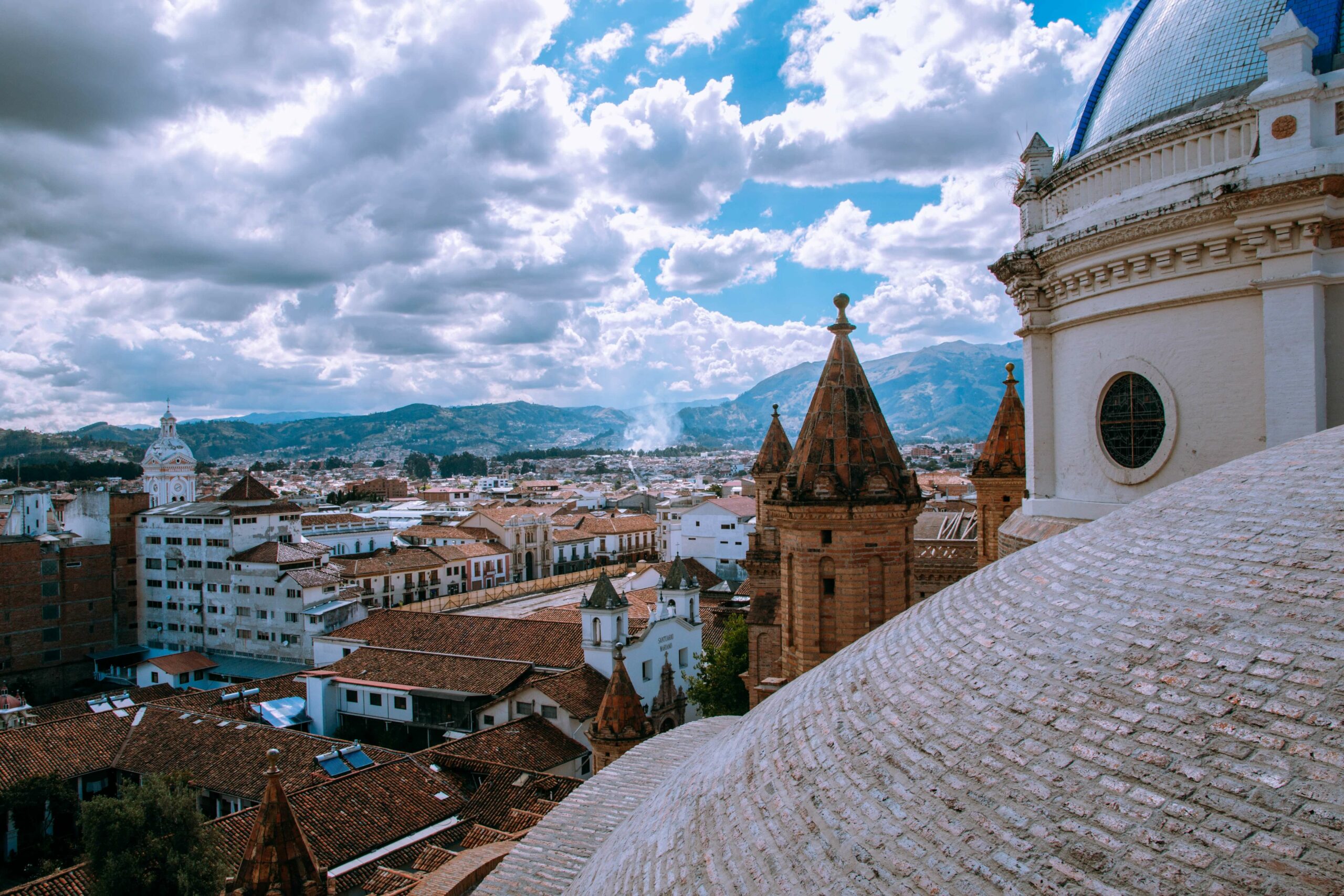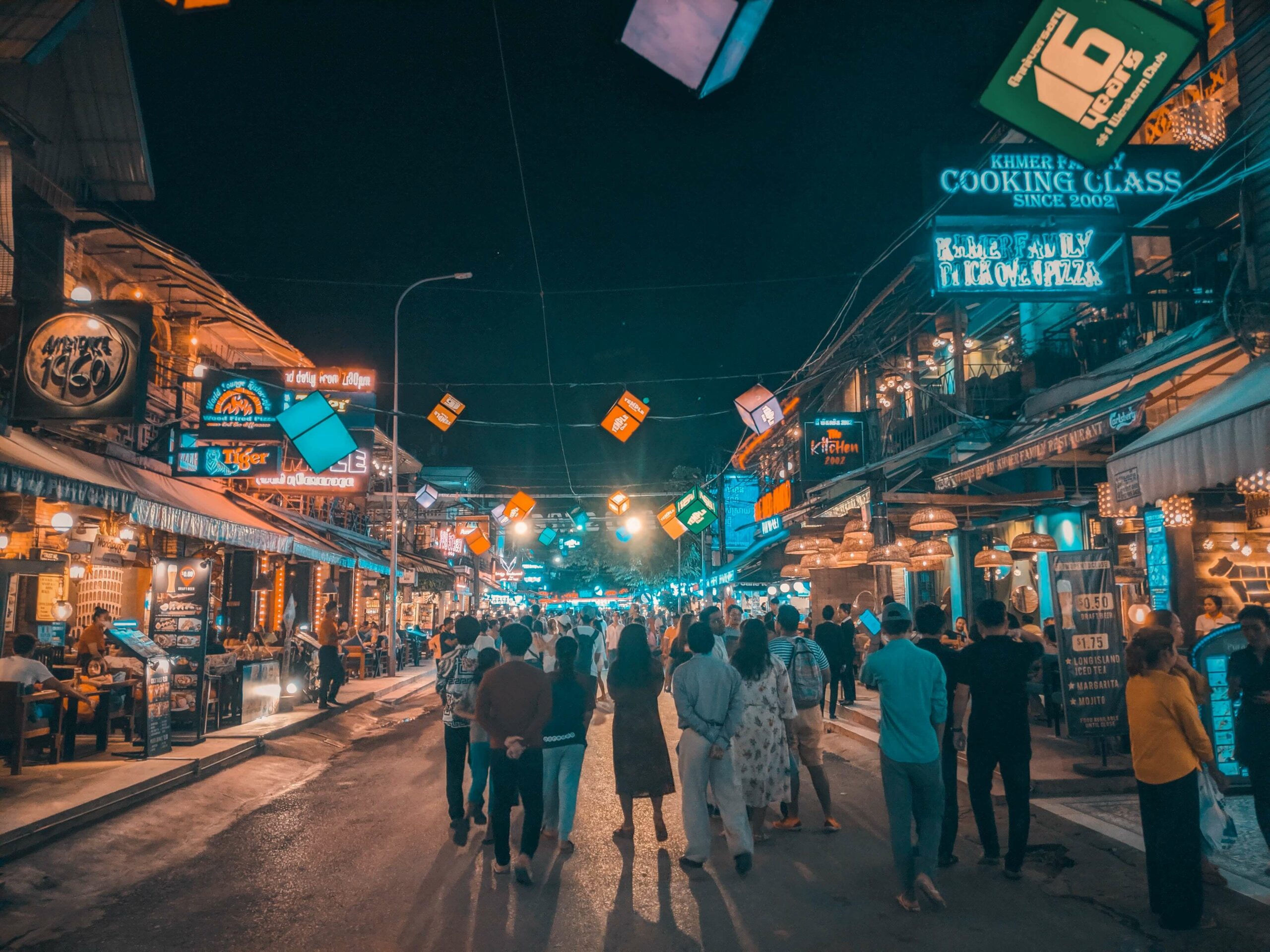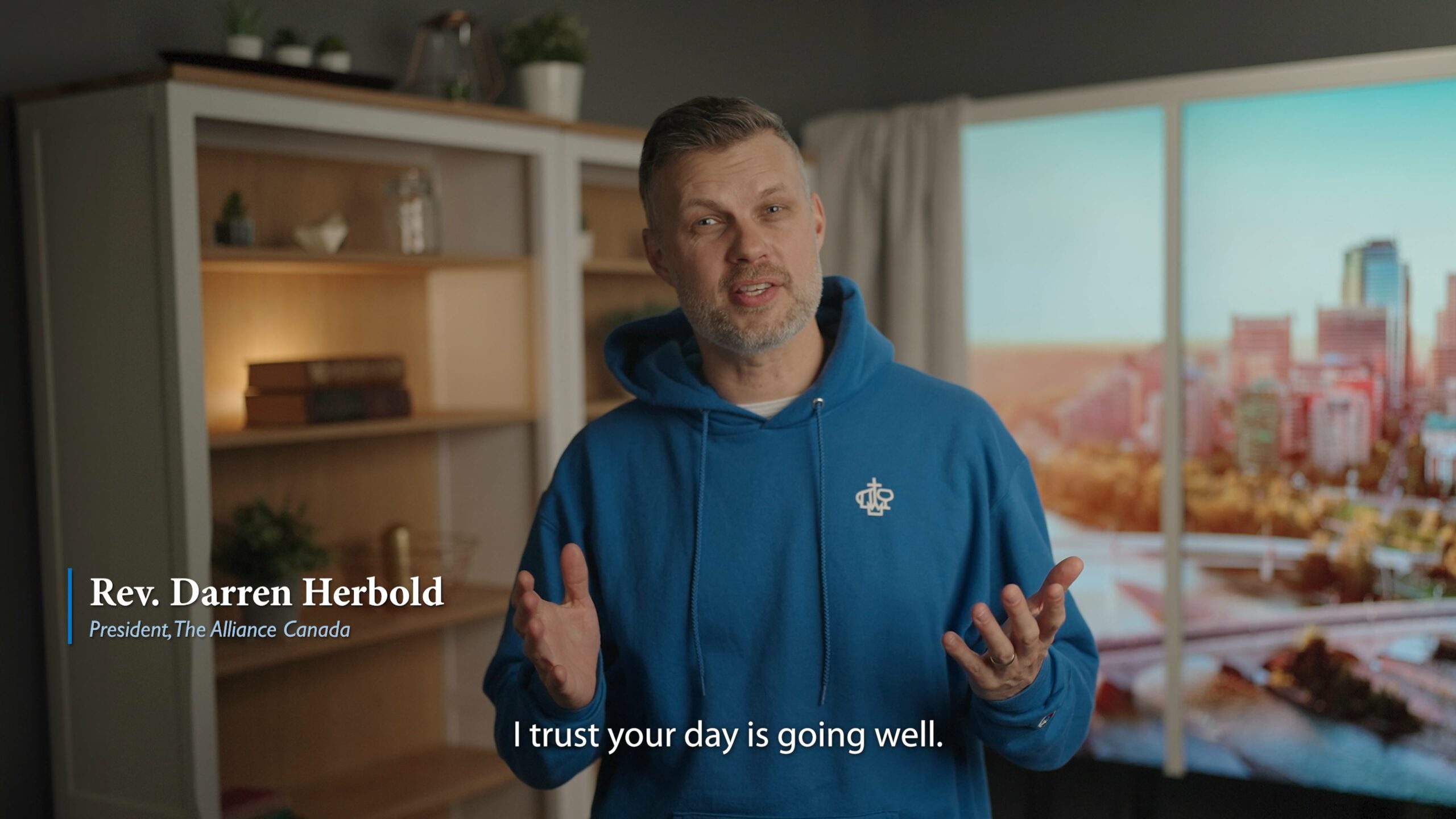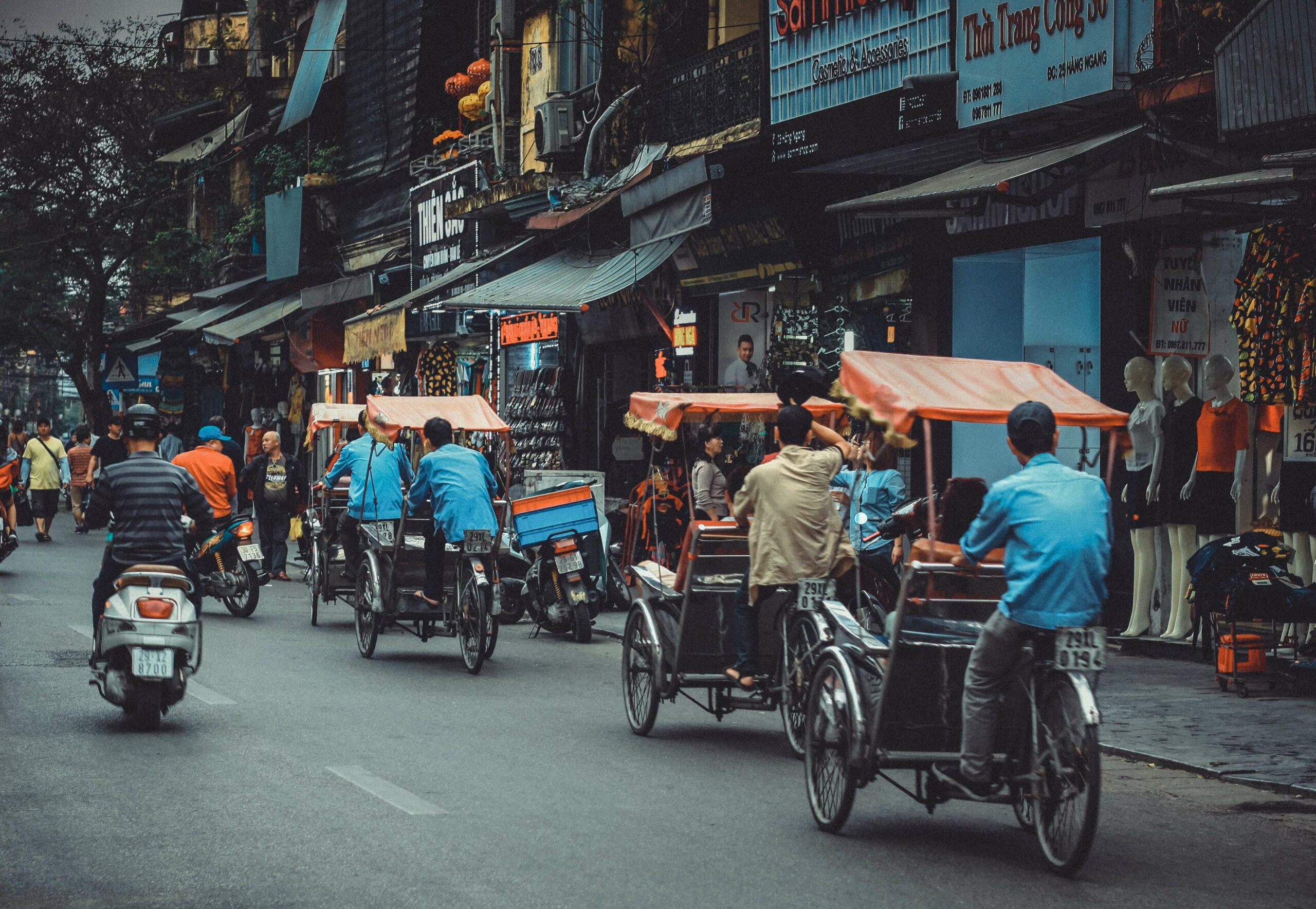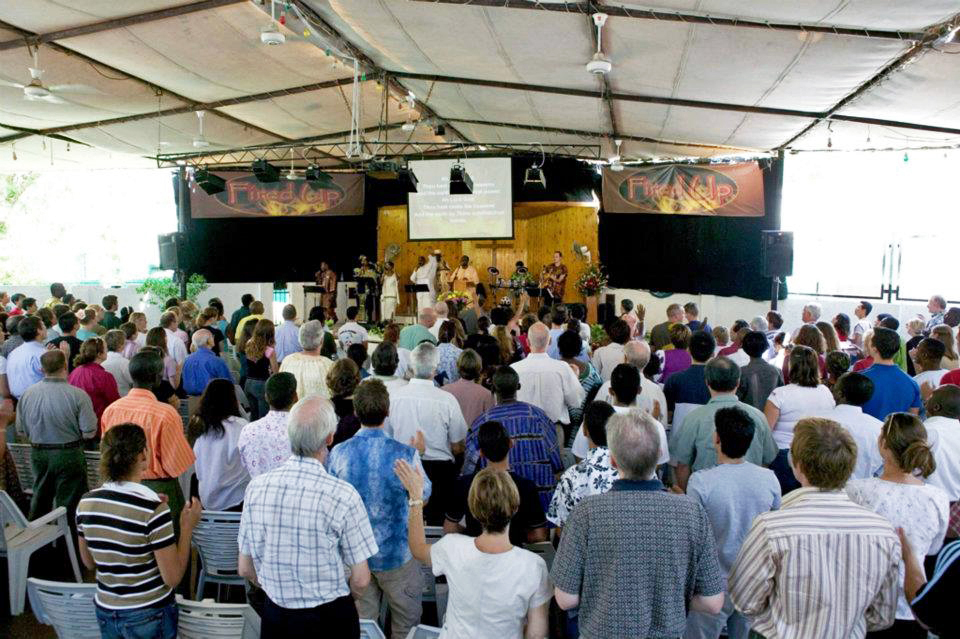I cannot remember a time when I did not know about missions. Surely I was naive about what “going into all the world” meant, but I understood that the Lord would send those He chose and those who were obedient.
Missionaries on furlough visited my church and home in Belleville, Ontario, and proved to be catalysts for my own response to the Lord’s call on my life. By the time I was eleven years old, I spoke confidently of this call. One such missionary was Mrs. Ethel Bell, who, following her husband and two children’s death, fled Mali with her two remaining children. They and fourteen other passengers survived for thirty days on a raft in the Atlantic Ocean after their ship, the West Lashaway, was torpedoed in 1942. Her witness to the Lord’s faithfulness, and her own unwavering commitment to His service, along with reports from other missionaries who visited our congregation, were a testimony I have not forgotten.
The Early Years
I was born into a home where faith in Christ was a central aspect of daily life. My sister and I were taken to the Alliance Tabernacle in Belleville, Ontario every time the doors opened, or so it seemed. Even the death of our father when I was four did not affect our attendance. In fact, as we matured, we were expected to become increasingly involved with church activities. Some of these carried over into our home, where mother invited others our age, and together, we learned to sing trios and quartets.
By the time I was in high school, it was necessary to take on odd jobs and eventually full-time summer work, though not always near home. However improbable it may have seemed, my widowed mother knew my call to the Lord’s service was real and would involve preparation. The Alliance Bible Institute was where I needed to be.
Canada-wide and international travel are so extensive now that it seems much of the mystery and excitement of new landscapes has been lost. I still remember my wonder during the last leg of my three-day trip from my home in Belleville to Regina, Saskatchewan, coming to study at the Western Canadian Bible Institute. I saw that seemingly endless expanse of wheat fields, and my world was somehow bigger.
Anyone looking for me in the following eight years would have found me in the small prairie town of Haywarden, Saskatchewan. I lived surrounded by an endless view of wheat fields married to Cecil Marvin Smith, mother of Gordon Timothy, and Judith Marlene. After graduating from the Western Canadian Bible Institute, I taught there and was now fulfilling ministry requirements for accreditation as a missionary with The Christian and Missionary Alliance (C&MA). Cecil and I were married in Belleville in 1952 and had applied “open,” meaning we agreed to go overseas wherever C&MA leadership deemed best.
Ecuador, 1956-1959
We received our assignment to Ecuador on January 10, 1956, just two days after reports emerged of five missionaries’ deaths in the Ecuadorian jungle. How could we know that we would live only a few kilometres from that remote site in three years?
Initially, we were sent to Costa Rica to attend language school in San José. The first jolt for me was not the city’s beauty but learning that a person I had never met would be assigned to care for my children while I attended classes. My goal to teach the Scriptures in Spanish was replaced by learning to talk to my children’s caregiver.
Our stay in Costa Rica was unexpectedly brief. A change in the political scene in Ecuador posed the possibility of us not being granted visas. The president-elect had campaigned on a promise to rid Ecuador of Protestants. After two months in Costa Rica, we were abruptly instructed to arrange a move to Quito, Ecuador’s capital, high in the Andes mountain range. Our trip to Ecuador provided the bumpiest airplane ride of my life, or so it seemed then, followed by three days stranded in Panama City without our luggage.
In Quito, the Alliance field director arranged our language classes at three different venues, reached by long bus rides over cobblestone roads. First, there were classes with an Alliance pastor at the church in the city centre, then a professor at the university, and finally in the home of a private teacher we knew as Miss Balarezo. These tedious trips had an unexpected result—I have never worn high heels since.
Once again, our schedule meant I needed assistance with the children. I arranged for Piedad (Piety) to help us. Each day, she came to our home, bringing her daughter Soledad (Solitude), who was Judy’s age. I had been advised against hiring a helper who brought a child with her, but as I look back, I recognize that Piedad was placed on my path by the Lord. She offered one more motivation to learn the language, and, just as important, she taught me how to live in Ecuador, giving a thousand lessons no “how-to” book could ever match.
Cecil became very ill with hepatitis in early 1957 and was hospitalized. During the same epidemic, a teacher at the Alliance Academy (a school for missionaries’ children) became ill. He eventually resigned, and I was tagged to teach. My qualifications? Basically: willingness and, within limits, high school math, English, or Bible (no science, please).
When Cecil recovered, he needed private language lessons. As for me, I felt like a sponge absorbing Spanish; I took the language on with joy, no matter the setting. Right from the start, we attended church on Sundays, which meant more buses while carrying our children. We learned the hymns, even when sermons were still hard to understand.
Piedad and Soledad eventually came with us when we were assigned to teach at the Alliance Seminary in Guayaquil, a tropical port city. They stayed about three days. By then, Piedad had had enough of the heat and the mosquitos. She took Soledad and headed back to Quito and the mountains, but we never lost touch. Whenever I was in Quito, she would somehow find me; even when we visited Quito after our retirement in Canada, she heard we were there and came to the Alliance guest house. Fifty years after our first meeting, we had become two great-grandmothers remembering multiple smooth and rough spots in our lives, along with the unforgettable experience of the Lord’s blessing and mercy and the bond we shared as sisters in Jesus.
Though most of our ministry in Ecuador turned out to be in the Alliance Seminary in Guayaquil, we were there only one year during our first term. In 1958 we were re-assigned to the jungle village of Pano, on the banks of the Pano River, headwaters of the Amazon. At the time, mission theory emphasized the need to place extra effort and personnel in locations that had increased response to the Gospel. The 1956 killing of five missionaries in the Ecuadorian jungle (known in Ecuador as the East – el Oriente), accompanied by heightened concern for the tribal people of the Amazon jungle, prompted the Alliance to increase workers in that area. Our immediate task was to become proficient in the Quichua language, although we felt that we barely became comfortable in Spanish.
The trip from the coast was strenuous. Cecil was required to go ahead, by plane, as far as Quito for consultation with the field director while Gordon, Judy, and I were to travel up to Quito by train. In His mercy, the Lord sent with us a student, Silvia, whom I had taught in the Bible Institute, and who, like Piedad, became a life-long friend. I visited Silvia in Guayaquil during my last visit to Ecuador. She had married Cesar, another former student I knew well, and had three daughters. The eldest, Eunice, was puzzled about my relationship with her mother and asked something like, “what is it with you two”? I responded, “When you have laughed and cried together as much as your mother and I have, there’s a curious bond that scarcely needs words to express.”
This curious bond was formed on that trip. We left Guayaquil early one morning, going by taxi to the river, the majestic Guayas. We crossed the river by boat and carried the children, our belongings, and enough food and water for the trip to the end of the train line. We travelled about 20 hours on the circuitous, narrow, steep, and breathtakingly beautiful route up the Andes range to Quito by train. Reunited with Cecil, we took a bus down the eastern side of the Andes range on a narrow ledge above a deep gorge where the Pastaza River flows to the Napo and eventually reaches the Amazon. All five of us arrived in Pano on a small plane of Missionary Aviation Fellowship (MAF).
We lived in a mission-built house on the Pano River banks, a pleasant and memorable experience though we learned little Quichua. Within a few months, we faced another abrupt move. I took very ill with symptoms indicating rheumatic fever. Our field leader, Henry Miller, had been hearing reports of my illness over ham radio through the MAF base in Shell Mera. On December 24, we were surprised to hear a plane in the distance. Henry Miller had come to take me to Quito. Taking Judy with me, we departed from Pano by plane. After Christmas, I was hospitalized in Quito; it was many years before I saw Pano again by car. By then, it was no longer remote because roads kept stretching into the jungle for those in search of oil.
We completed our first term of missionary service in the beautiful city of Ambato, on the slopes of the Tungurahua volcano, south of Quito. Our ministry there involved visits to a Salasaca Indian village. Wearers of black ponchos and unique white hats, the Salasacas, have been exiled to Ecuador from Bolivia. They were forced to use the Quichua language by the Incas, who used exile to diffuse opposition to their cruel rule.
From Ambato, in our new Land Rover, we visited other mountain villages where we held outdoor meetings. The message was not always welcome, but I only remember being chased from town once. We felt confirmed in our call and eager to announce the enormous mercy in the message we had to share.
Gordon and Judy both succumbed to hepatitis in Ambato while I was still recovering from rheumatic fever. Even though there were some difficulties during our first term as missionaries, those four years (which included Costa Rica, Quito, Guayaquil, Pano, and Ambato) taught valued lessons of faith and service. Ecuador was home, but Canada welcomed us for home assignment; instead of finding snow high on the volcanoes’ slopes, it soon appeared around our ankles.
Guayaquil/Quito (Return for the second term July 1961)
When we were living in Ambato, Gordon moved to the Alliance Academy’s dormitory in Quito to begin grade one. After returning from Canada for our second term of service in Guayaquil, we sent Judy to Quito as well. At the time, and for many years prior, the policy was for children of missionaries to study in residential schools. This policy tore at our emotions and conscience, eventually leading to our resignation. We had no idea what to do next except return to Canada and seek to serve the Lord as He led.
Our resignation was not accepted. After another home assignment, we continued to serve in Guayaquil with our children in school there. We were assigned to Quito in 1966, where Cecil was designated director of the Academy, and I was to teach again. The repercussions of our initial resistance to authority left us under a cloud, inevitably influencing our relationship with some of our colleagues. Yet, the Lord somehow stretched our income to match our need to pay tuition. I can confidently say that our ministry was not hindered but was enhanced when we lived as a family like other members of the coastal community we served.
Guayaquil, Returning “Home,” 1961-1966
Back in Guayaquil, I was the Greek teacher at Seminario Biblico Alianza (SBA). I insisted on making it fun for students, showing them that though Greek may look complicated, it is not. Greek was usually my early morning class, followed by Bible, Theology, and Hermeneutics. Additionally, I taught piano, accordion, and evangelism or church history, whatever was needed. Students came from as far north as Puerto Rico and as far south as Chile; some are now serving the Lord in locations much further afield. A Peruvian graduate of SBA recently wrote from Rome to suggest I join her in Italy, where she and her husband serve under The Christian and Missionary Alliance of Peru.
We also ministered in local Alliance churches, usually including our children. I played my accordion and brought messages in countless meetings, being involved on Sundays, for special events, and on Good Friday after a week of special Easter services. Some churches were split bamboo structures built on stilts over the tidal flats, located in the outskirts of Guayaquil, while others were reached by boat across the Guayas.
Benjamin Milton was born in 1967 during our second home assignment in Canada, nearly leaving us for Heaven when he became very ill with an intestinal obstruction during the General Council of the C&MA in Hartford, Connecticut. Benjamin brought a brand-new chapter of family life. Because of his illness, we remained in Canada for a while, serving as missionaries-in-residence at Canadian Theological Seminary (now Ambrose), where we taught and studied. Then the five of us returned to Guayaquil until Gordon graduated from high school. He left our campus apartment at SBA, where he had spent much of his childhood, and moved to Regina’s Canadian Bible College campus. Judy eventually studied in Regina as well, going on to settle in Winnipeg, Manitoba.
There were many lessons prepared, papers graded, theses read, chapel services attended, new personnel received, and adjustments made to ongoing ministry changes, and in Ecuador, during our missionary career. Every situation, including political upheaval, called for a renewed confidence in our Lord’s guidance and care. Without faith, I certainly would have faltered.
I was called back to Canada in 1972 to spend one final week with my Mother before she passed into the Lord’s presence. She had not allowed her sisters to call me home until she knew her time on earth was short. I had written to her every week since 1947, knowing mail delivery from Latin America could take months. She always appreciated and collected my poetry!
We experienced countless blessings and pleasures, including trips to the Pacific to camp under our home-made shelter on a long stretch of beach. We might not see anyone except a solitary fisherman in the distance during our three or four-day vacation. Visits to Quito, church camps, and two trips to Lima, Peru, starting with an overnight boat trip down the Guayas River, then a truck ride to the border with a delay over Ecuadorian exit permits were all part of the adventure.
In Ecuador, we sang a simple song, which I have long remembered, “En la lucha y en la prueba la iglesia sigue caminando.” In English, “in the struggles and the trials the church keeps on going – Gloria Aleluya!”
Our third home assignment took us back to Regina. Benjamin was in grade school, Cecil was involved with missions reporting, and both of us participated in campus ministries. In my case, I oversaw the registration of new students while I completed requirements for a Master’s in Missiology.
We spent most of twenty-five years in Ecuador. Guayaquil remains a place of extraordinary memories and significance in my life’s journey, certainly in part at least because it was there the five of us lived together the longest, holding many shared memories. Benjamin had not been with us in Pano, Quito, or Ambato, though together we visited those places later.
Our trip to Canada in 1981 turned into another significant relocation. I had been invited to teach at Tyndale Seminary in Toronto and accepted the invitation with the authorization of C&MA leadership. Initially, I had no plans to study but graduated from Tyndale in 1983 with a Master in Divinity. For as long as I remember, reading, study, and the wonder of libraries have been like recreation for me. I confess to still burning the porridge on occasion when I cannot get, as my mother would say, “my nose out of that book.” Tyndale was a special gift in an uncertain time.
In between Cecil’s speaking tours, we learned he had cancer, and he was admitted to a Toronto hospital for surgery. Amazingly, the Lord provided housing during this challenging period. We lived in six different homes or facilities during 1982 and 1983. After Cecil’s recovery and some decisions made regarding Alliance ministries in Mexico, we were redeployed.
Mexico, 1984-1996
At the Annual U.S. General Council, a decision was made that Alliance ministries to Mexico should no longer be under the auspices of the U.S. domestic Spanish ministries but rather should be administered similar to other nondomestic ministries. There were already Alliance churches in Mexico, mostly along the northern border. Cecil and I were the first workers assigned to Mexico under this new arrangement, and it led, during our time there, to the establishment of the National Alliance Church of Mexico.
We were based temporarily in McAllen, Texas until we received final confirmation as to where to begin our Mexican ministry—Mexico City. From McAllen, we had made several trips to the city, a mammoth by any standard. I travelled by bus to the northern city of Monterrey to teach evening courses in an Alliance church there. The last of our three to leave the nest, Benjamin graduated from high school in McAllen and left home to study at Trinity Western University. Before he left, we three visited Manila, Philippines, where Gordon and his family served as Alliance missionaries.
Cecil and I drove into the great metropolis of Mexico City in February 1985. Not surprisingly, we were promptly lost. We ended up spending most of fifteen years in that amazing mini-nation. Except for visits, we were empty nesters. After renting a house, we, literally waited. How do we start a church from zero?
Completely unplanned, we met an Ecuadorian believer whom we had never met in Ecuador. He and his family invited us to their home located only a few blocks from our rented house. Through this new friendship, we met several young adults with whom they had shared the Gospel. The encounter did not seem remarkable at that time, yet as I look back, I recognize once again that when the Lord gives us an assignment, He opens a route to follow. Weeks later, some of those we met began to gather in our home, where I started Bible classes.
Later we met in a rented space to worship together, and finally as a church with a pastor, baptisms, the Lord’s Supper, offerings, weddings, and funerals. All this came to fruition, but not without the struggles of any congregation learning to love, worship, and serve together. In September 1985, we as a church reflected on the disruption of a massive earthquake. A month later, Cecil was hospitalized with pancreatitis. Our Good Shepherd, as always, was there for that bumpy road.
We planted two small churches in Mexico City; though now moved from their original locations, they still prosper and support their pastoral leadership. Four pastors were called to the ministry out of our first small group, ministering in the capital and other cities. Some of those we met through that initial contact in our Ecuadorian friends’ home are still in touch with me, encouraging my faith.
Retirement
In 1996, forty years after our first departure, we returned to Canada following our final term as official missionaries. While our children, being in Canada, certainly softened the trauma, it felt like an abrupt end to a context that had come to describe who we were and where home was. We were able to return several times, visiting and teaching in Quito, Guayaquil, Guadalajara, and Mexico City. My most recent such opportunity was in Cuba.
Throughout our missionary experience, Cecil made many trips in Canada and the USA, presenting missions to C&MA churches. To a lesser degree, I was privileged to speak in Canadian churches in each of the provinces, often for week-long mission conferences. I had anticipated I would find this difficult, but it gave me great joy along with the reward of many acquaintances and lasting friendships.
Cecil served as an interim pastor in Ottawa in 1997, and I helped in a Spanish language congregation meeting at the University of Ottawa. From Ottawa, we made the first of two trips back to Ecuador, where we were so blessed to re-experience the tie that binds our hearts in love; we also made the first of three visits to Australia to meet Benjamin’s family.
In 1998, Cecil and I left Ottawa, making our way west to British Columbia, stopping to visit family along the way. The Lord led us to rent the duplex where I now live, in Richmond, a few blocks from the Pacific coast. It is a different latitude than Guayaquil and a different continent than our previous home, but it too has become home where strangers soon welcomed us at Richmond Alliance Church.
Cecil passed on to glory in December 2012 and is buried not far from the ocean. I serve at church where needed and am blessed with loyal friends I did not know during the first seven decades of my life. My faithful family, even from a distance, make sure they know what I am up to!
Recently, I was surprised to be recognized as a distinguished alumnus by Tyndale University & Seminary in Toronto and by Ambrose University Seminary in Calgary. I earned degrees decades ago from both schools. I was also honoured to be ordained by the C&MA in Canada, under whose auspices, and by the Lord’s eternal mercy, I have served these many years.
Editor’s Note: Eunice continued her ministry at the Richmond Alliance Church until she moved to Winnipeg, Manitoba, to live with her daughter Jude. She passed away on November 14, 2019.
This is an excerpt from the book, On Mission Volume 1. Download your free copy today.
Share:
Find more posts about:
The Alliance Canada
Support the mission
The Global Advance Fund (GAF) is a pooled fund that supports our workers in Canada and around the world to share the Gospel with people who haven't yet heard the name of Jesus. Your continued generosity equips and sustains our workers and their ministry.

